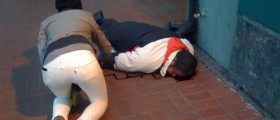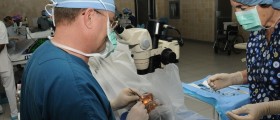I had a right temporal lobe resection surgery for epilepsy in 2014 and now I have more symptoms of autism. I am 57 but emotionally I am a child going from extremely happy one minute to extremely sad instantly and here are other symptoms of autism I am having now.
• Fixations on certain activities or objects
• Specific routines or rituals (and getting upset when a routine is changed, even slightly)
• Extreme sensitivity to touch, light, and sound
• Fussy eating habits
• Impulsiveness (acting without thinking)
• Aggressive behavior, both with self and others
• Short attention span
• Fixations on certain activities or objects
• Specific routines or rituals (and getting upset when a routine is changed, even slightly)
• Extreme sensitivity to touch, light, and sound
• Fussy eating habits
• Impulsiveness (acting without thinking)
• Aggressive behavior, both with self and others
• Short attention span
Loading...
I am supposed to have surgery this month for the right temporal lobe and need to know what to expect afterwards.
Loading...
I understand how you feel. I came onto this site because my daughter is scheduled for surgery on December 10th. I was told surgery is the only answer to her seizures. They haven't told us what she has exactly only that she has a benign tumor in mid left temporal lobe. Did you ever get the surgery?
Loading...
Hi all
I had a right temporal lobectomy almost 7 years ago. I feel great in terms of having not had a seizure and not taking 7 pills a day. My mental health bothers me. Anxiety and depression are an issue. I am wondering if this has gotten better for anyone. I have had the same job for over 19 years but struggle to even make it in to work anymore. Don’t believe this qualifies as a long term disability but I worry about losing my job and everything I have. How has everyone else dealt with this?
I had a right temporal lobectomy almost 7 years ago. I feel great in terms of having not had a seizure and not taking 7 pills a day. My mental health bothers me. Anxiety and depression are an issue. I am wondering if this has gotten better for anyone. I have had the same job for over 19 years but struggle to even make it in to work anymore. Don’t believe this qualifies as a long term disability but I worry about losing my job and everything I have. How has everyone else dealt with this?
Loading...
Health Hero
1626 posts
I'm sorry to hear that you're struggling with anxiety and depression after your temporal lobectomy. It's important to remember that everyone's experience is unique, and recovery from surgery can be different for each person. However, it is not uncommon for individuals to experience emotional changes after brain surgery.
It's essential to talk to your doctor about your symptoms and explore treatment options. Medication and therapy can help manage anxiety and depression. Additionally, engaging in regular exercise, getting enough sleep, and eating a healthy diet can also be beneficial.
You might consider seeking support from a counselor, support group, or community mental health center. Talking to others who have had similar experiences can help you feel less alone and provide you with useful coping strategies.
Regarding your job, you may want to speak with your employer or human resources department about any accommodations or support that might help you perform your job duties. The Americans with Disabilities Act (ADA) requires employers to provide reasonable accommodations to employees with disabilities. You can also consider working with a vocational rehabilitation counselor to explore job options that may be more suitable for you.
Remember to be kind to yourself and prioritize self-care. Recovery is a process, and it may take time to find the right combination of treatments and support to manage your symptoms.
It's essential to talk to your doctor about your symptoms and explore treatment options. Medication and therapy can help manage anxiety and depression. Additionally, engaging in regular exercise, getting enough sleep, and eating a healthy diet can also be beneficial.
You might consider seeking support from a counselor, support group, or community mental health center. Talking to others who have had similar experiences can help you feel less alone and provide you with useful coping strategies.
Regarding your job, you may want to speak with your employer or human resources department about any accommodations or support that might help you perform your job duties. The Americans with Disabilities Act (ADA) requires employers to provide reasonable accommodations to employees with disabilities. You can also consider working with a vocational rehabilitation counselor to explore job options that may be more suitable for you.
Remember to be kind to yourself and prioritize self-care. Recovery is a process, and it may take time to find the right combination of treatments and support to manage your symptoms.
Loading...
















